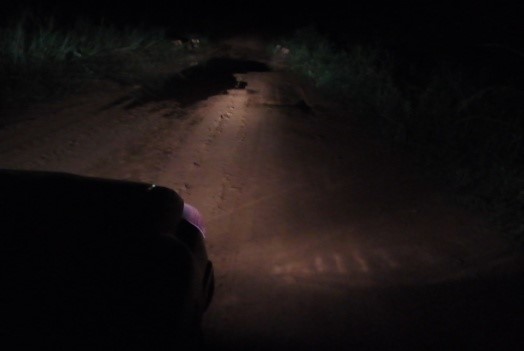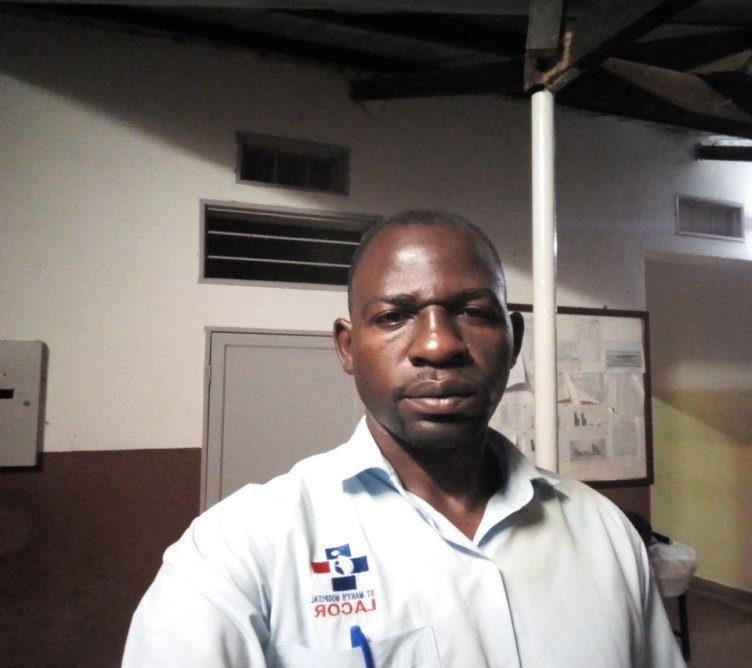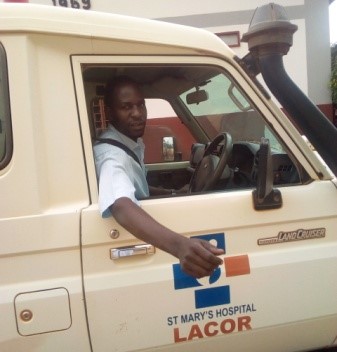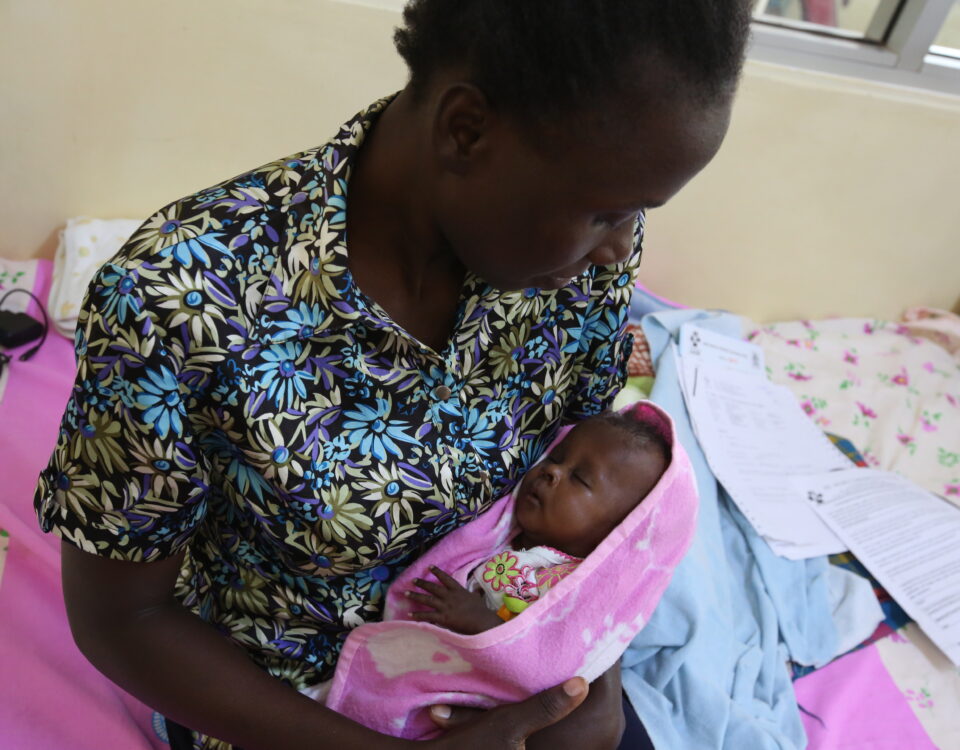41,000 miles is the distance our drivers covered to pick up women and children in the last quarter. Transport is still a major barrier to access to healthcare services in northern Uganda, especially for pregnant women and children. In this article, Samuel Acire, one of the ambulance drivers, shares his experience during a night shift.
Here is his story
The beauty of the night shift is that the needy and most vulnerable needs are taken care of; children with severe anemia due to Malaria, pneumonia, and other conditions of distress, mothers with complications during their active labor, the poor adult who cannot afford transportation to the main Lacor Hospital and the unfortunate who are involved in road traffic accidents and domestic violence at night.
They are able to access quality and sustainable healthcare in a humane environment from the main Lacor Hospital with the help of ambulance services. The referrals are mainly from the three peripheral Health centers III of Lacor Hospital; Amuru at 85km, Opit at 75km, and Pabo at 67km respectively. There are some from the community around Lacor Hospital as well.
Monday 31st October 2022 was my last night on the shift for the month. I cannot forget the success realized during the busy night when I had the opportunity to pick up mothers and children from Pabo on one trip, Amuru on two trips, and respond to a mass traffic accident scene in Gulu City where a truck carrying more than 40 passengers and their luggage coming back from a weekly market day in Lutuk trading center in Amuru district lost control and overturned, killing 8 people and injuring dozens of passengers.
There is a real need for ambulance services to save lives. Lacor Hospital, in fulfillment of its vision “to be a hospital of choice, providing quality, sustainable care in a humane and supportive environment”, is really committed to doing so with great diligence. All these cannot be possible without the help of Donors and well-wishers who sacrifice their money and property to support the mission “to provide Affordable, Quality and Sustainable Health care to the needy & to train professionals of high integrity, in witness of the church’s concern for all.
What moves me seriously is seeing pregnant mothers struggling to come to the health center of Amuru, Pabo, and Opit during their labor without their husbands, no food, no proper clothing, and something to help themselves with. In their pain, they cry bitterly because there is no one (husband) to accompany them when they need them the most.

The murky road that Samuel has to maneuver during night shifts
Looking at the malnourished children having severe anemia due to severe malaria because they are always brought to the health center very late makes me want to shed tears. But what motivates me a lot is seeing the hospital providing free ambulance services and affordable health care that save their lives in the end.
As ambulance drivers, we are sometimes overwhelmed by the number of patients in need of transport for referrals to the main hospital at the same time, the bad road, especially the road going to Amuru and Opit. When it rains, it is almost impossible to drive through.
But proudly, the kind of ambulance we have are able to make it through although it is difficult. The 4×4 Land cruisers are unbelievable. Thanks to the Hospital management, the donor community who donated the ambulances, and the Corti foundation. Truly the ambulances that you donated are fulfilling the purposes for which they were donated.

Samuel Acire – Ambulance Driver


